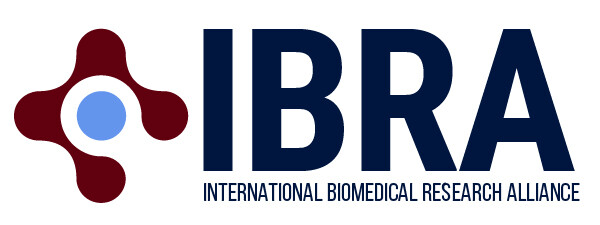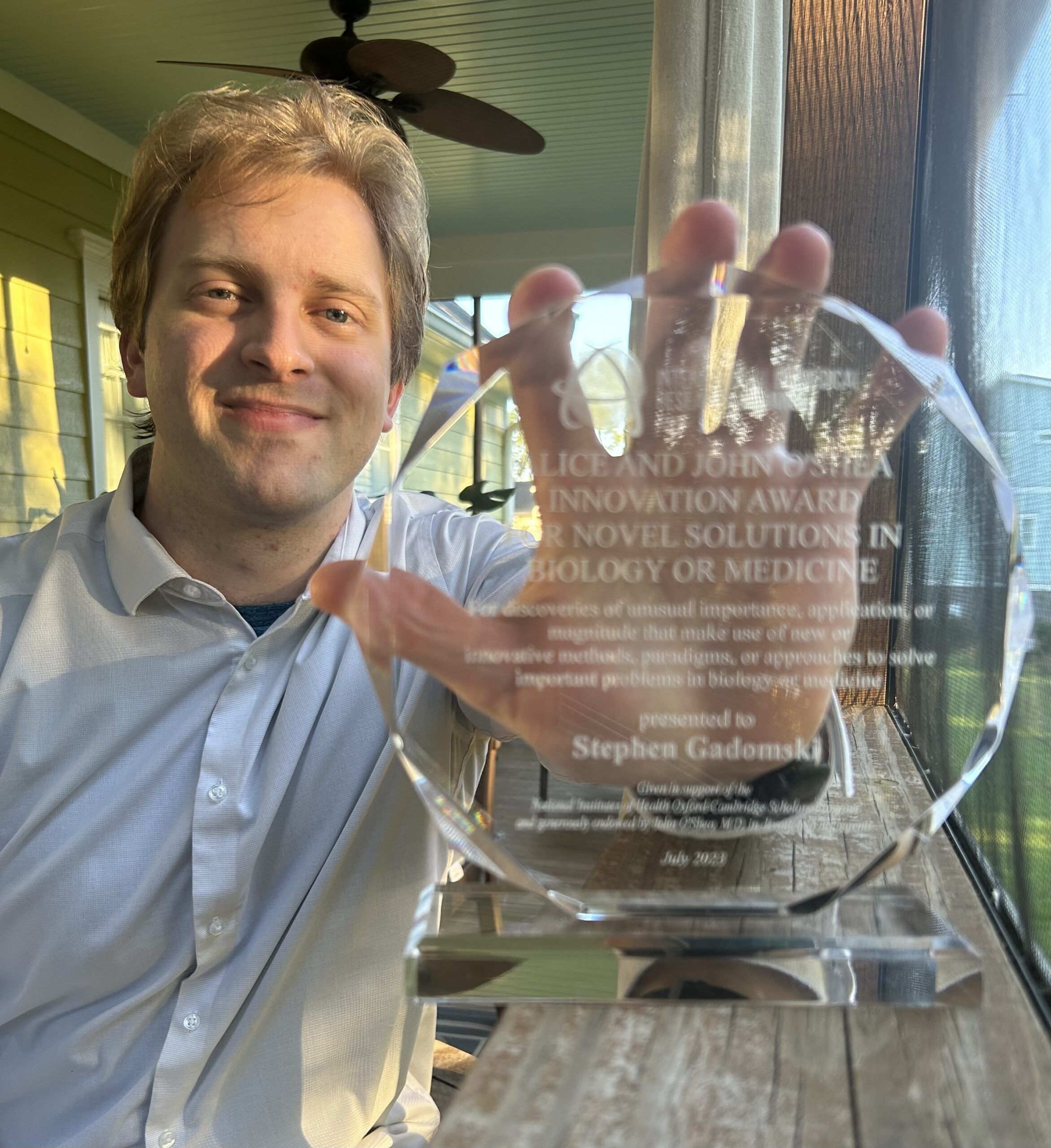First awarded in 2016, the International Biomedical Research Alliance’s Innovation Award recognizes novel solutions in biology or medicine and acknowledges discoveries of unusual importance, application, or magnitude that make use of new or unusual methods, paradigms, or approaches to solve important problems in biology or medicine. This award has been endowed by Dr. John O’Shea, a member of the faculty co-founding team and long-time supporter of the NIH Oxford-Cambridge Scholars Program and presented by Dr. Irini Sereti.
Congratulations to the Class of 2019 NIH-Cambridge M.D./Ph.D. Scholar Dr. Stephen Gadomski on being named the 2023 recipient of The John and Alice O’Shea Innovation Award for Novel Solutions in Biology or Medicine. His mentors are Dr. Pam Robey at the National Institute of Dental and Craniofacial Research and Professors Simon Mendez and Andrew McCaskie at the University of Cambridge.
Stephen has made major advances in several areas by applying innovative and novel techniques to musculoskeletal tissues. Using these tools, he has contributed greatly not only to our basic understanding of skeletal tissue but has also provided new therapeutic approaches for the treatment of degenerative diseases. During his time at Cambridge, he made novel discoveries at the interface between the neural and skeletal systems that significantly advanced the scientific understanding of biological processes, and provided new and innovative approaches for the treatment of osteopenia and osteoporosis. Stephen was a recipient of an NIH FARE Award for this work.
Upon Stephen’s return to NIH, he made major advances in the Robey lab’s efforts to develop reliable methods to restore cartilage lost due to disease or trauma. These studies provided key mechanistic insights into cartilage biology, which can be applied to advance clinical therapies for degenerative joint diseases including Osteoarthritis. Based on this work, the NIH and Cambridge have supported the filing of a provisional patent application.
“It’s a great privilege to have the opportunity to work in a supportive, collaborative environment,” noted Stephen. “Finding novel solutions that can make a difference and advance medical therapies is a team effort. Dr. O’Shea and my mentors have sacrificed time and effort in founding and cultivating the NIH Oxford-Cambridge Program, as well as supporting my passion for science.” Stephen is currently finishing his medical degree at the Medical University of South Carolina with an aim to become a Principal Investigator in biomedical research.

